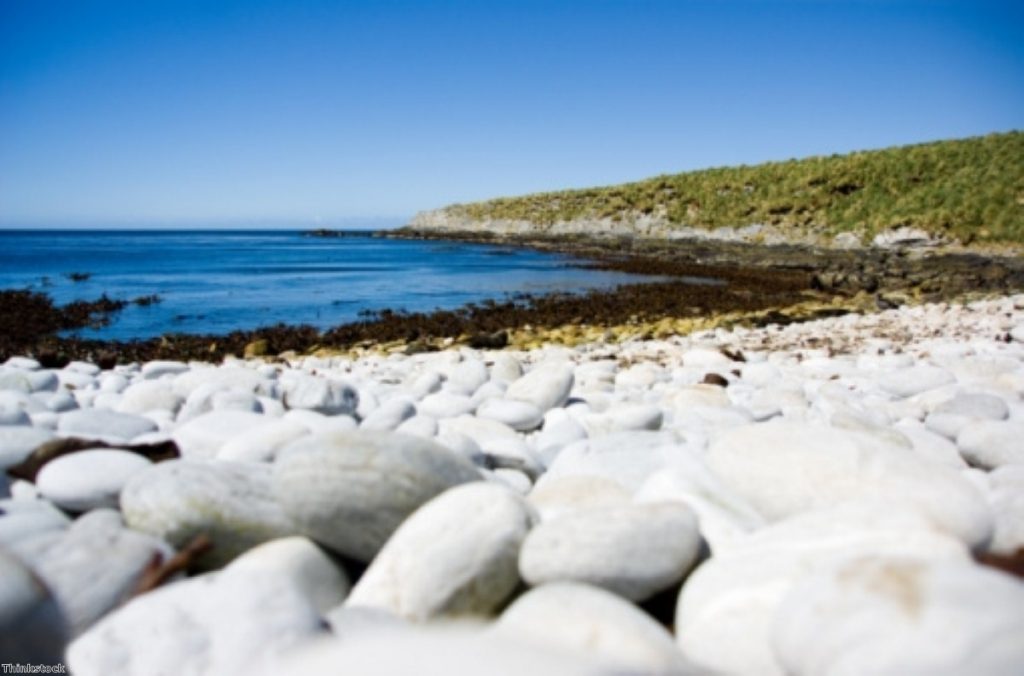Overnight, the Falklands dispute comes alive
By Ian Dunt Follow @IanDunt
There were intense diplomatic scenes overnight, after a Latin American deal froze a host of British ships from using their national ports in response to the UK's continued ownership of the Falkland Islands.
The Mercosur bloc, which includes Brazil, Argentina and Uruguay, voted to close their ports to ships flying the Falklands flag, in an unforeseen move which surprised the Foreign Office.
"We are very concerned by this latest Argentine attempt to isolate the Falkland Islands people and damage their livelihoods, for which there is no justification," a spokesperson said.


"It is not immediately clear what practical impact, if any, this statement will have, which mirrors the language already used by the Union of South American Nations in 2010. We are discussing this urgently with countries in the region.
"But no one should doubt our determination to protect the Falkland Islanders' right to determine their own political future."
The Foreign Office has summoned Uruguay's ambassador to demand an explanation for the deal.
Shadow foreign minister John Spellar expressed his support for the British government.
"While this looks like a bit of a flag waving gesture, Argentina should be in no doubt of the united determination of all parties in the United Kingdom to protect the Falkland Islanders' right to determine their own future," he said.
The agreement marks a new wave of solidarity with Argentina, which claims the islands as its sovereign territory.
Many analysts believe the new tensions over the island are a result of British companies exploring for oil in the waters surrounding them.
"You should know that when you are signing something on the Malvinas in favour of Argentina you are also doing it in your own defence," Argentina's president, Cristina Kirchner, said in a speech to the summit.
"Malvinas is not an Argentine cause, it is a global cause, because in the Malvinas they are taking our oil and fishing resources.
"And when there is need for more resources those who are strong are going to look for them wherever and however they can."
The Argentine president regularly attacks Britain over the status of the islands, recently calling it "a crass colonial power in decline".
Almost 30 years after Argentina and Britain went to war over the islands, they remain a potent symbol of nationalism in Argentina.
British licensed fishing boats are regularly intercepted by Argentina and Uruguayan president Jose Mujica last week announced a ban on Falklands boats using his country's ports.
The Argentine administration announced last year that boats sailing to or from the Falkland, South Georgia and South Sandwich Islands would require permission to pass through Argentine water.
The Uruguayan president is keen to appease Argentina, which is enjoying a strong economic boom and holds a high cultural and political status in Latin America, but he tried to stress that his actions were out of loyalty to his neighbour rather than an attack on British interests.
"We don't have anything against England, but we've got a lot in favour of our neighbour," he said.
''For the moment, this means accepting that this territory is a colonial British position in our America."
Boats with British flags would be allowed to use the country's ports, he added. He also promised never to impose a maritime blockade of the territory.
The Mercosur group, the most influential in the continent, includes Paraguay, Bolivia, Chile, Colombia, Peru and Ecuador as associate members, while Venezuela's application for membership is still pending.
The summit was thrown into confusion after Argentina's trade secretary was found dead in his room at the Radisson hotel. Early reports suggested he hung himself with a belt.
The news is understood to have deeply shocked President Kirchner, who was forced to visit a doctor.









